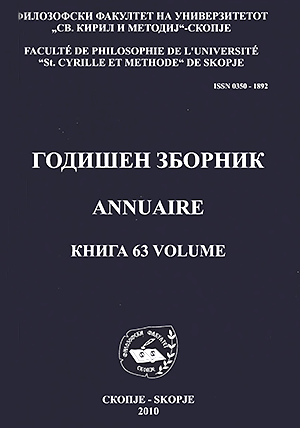PARADIGM OF HUMAN CAPITAL IN TRANSITION COUNTRIES AND THE ROLE OF THE UNIVERSITY IN ITS CREATION
DOI:
https://doi.org/10.37510/Keywords:
HUMAN CAPITAL, RESORTS, EDUCATION (KNOWLEDGE), INVESTMENT, IMPOSITION, COST-BENEFIT ANALYSEAbstract
Twenty first century, is known like a century for knowledge, implicate that knowledge has been threaded like capital, i.e. like individual intellectual capital that have particular price on the labor market.
Actually, the concept of human capital, as a knowledge, in west economies started somewhere in the middle of sixteen years, but in the countries that are in transition, even after collapse of socialism.
Today, the modern economical theory, elevate the human capital at the top of the pedestal of development factors, who will contribute to development market economy, that is need for every country and every citizen. The growth of the people’s products capability have a big influence of economy growth. So, the human capital is growing in educational system and also grow its contribution for economic development. The educational system directly influence on economic development in the countries.
Universities today should permanently confirm the profitability of investments in education, in front of the government’s and the local communities. To confirm that the education is not expense and country’s imposition, but on the contrary, the knowledge that creates universities is the most expensive developmental resorts and economic factor.
Downloads
Published
Issue
Section
License
Copyright (c) 2010 Trajan Gocevski

This work is licensed under a Creative Commons Attribution 4.0 International License.





